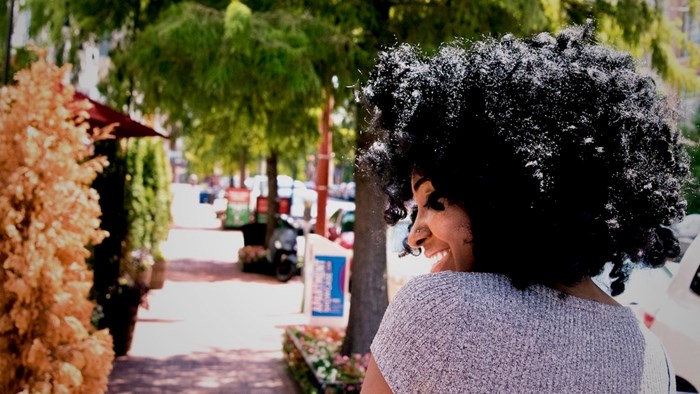Faith Leaders, Let's Embrace the Racial/Ethnic Identity of Young People of Color

The American Academy of Pediatrics, the Children’s Hospital Association, and the American Academy of Child and Adolescent Psychiatry recently declared the mental health crisis among young people in the United States a national emergency. Even before the COVID-19 pandemic, national surveys showed major increases over the past decade in mental health issues such as depression, anxiety, and suicidal ideation among young people.
The latest data from Springtide Research Institute, where I work as Senior Research Associate, confirm these trends. In 2022, nearly half of young people (47%) told Springtide they were moderately or extremely depressed, 55% reported being moderately or extremely stressed, and 45% said they were moderately or extremely lonely.
For Black, Indigenous, and People of Color (BIPOC hereafter), the mental health crisis is compounded by experiences of racial prejudice and discrimination. Research in psychology shows that these experiences are associated with elevated levels of trauma symptoms, depression, anxiety, and suicidality.
Despite these experiences, a new study from Springtide, Navigating Injustice: A Closer Look at Race, Faith & Mental Health, reveals that young BIPOC are flourishing mentally and emotionally at rates comparable to their White peers. Further, young BIPOC report high levels of life satisfaction, agency, and self-esteem. When asked about the kinds of things that support their mental health, over half of young BIPOC (58%) said that their faith matters. But why and how does faith matter for young BIPOC’s mental health, and what can faith leaders do to help?
Race as a guiding light
Our research shows that young BIPOC are as religious as their White peers. However, our data suggest that ethnic/racial identity is a more salient and consequential identity for young BIPOC than is religious identity. Our interview respondents were immediately able to describe how their ethnic/racial identity shaped their faith identity, but not necessarily the other way around.
We asked young BIPOC, “How, if at all, has ethnic/racial identity shaped your experience with your faith community?” May, who is Black and 20 years old, told us: “I am the person who can’t leave [race] outside of a space. Being Black shapes the way I think about things in a lot of ways and what I tend to think about. Religious or spiritual places are no exception.”
While young BIPOC shared stories about the racial prejudice and discrimination they’ve experienced, young BIPOC also shared how their ethnic/racial identity is a great source of joy and meaning in their lives. Darian, 25, for example, told us that his ethnic/racial identity gives him purpose. He shared: “When I think about what the Lord wants me to do on this earth, I think about, well, I was born half European and half Asian. Because of that, I’m able to relate to people in a deeper way and be a bridge between people. And, so, I think for me, my mixed ethnicity has been a kind of guiding light for how to serve others.”
Research shows that a healthy ethnic/racial identity—one that is meaningful and positive—is associated with greater self-esteem and fewer depressive symptoms. Young people who take pride in their ethnic/racial identity are also more likely to report belonging within their communities.
Isabella, age 23 and Latino/Hispanic, illustrates this well: “My faith community brought me a lot of confidence and less anxiety [regarding] who I am and where I come from. So, they influenced me in a positive way by honoring my culture, my identity. Understanding my identity just takes all the pressure off, you know? I was more proud to be Latino. I didn’t feel inferior. So, yeah, I just love who I am, and I love where I come from. My faith community has given me the confidence that I belong in this community and with Christ.”
In contrast to Isabella’s experience, other young BIPOC told us how difficult it is for them to be members of organizations or communities that do not celebrate, let alone acknowledge, their ethnic/racial identity. Lauren, age 15 and Asian American, explained, “Race is what makes you you. So, if your religion wants to separate race, if they’re not making you want to embrace your ethnicity, I feel like they haven’t really seen who you are.”
Embrace race
Young people feel truly seen and understood only when the trusted adults in their lives acknowledge all the meaningful and positive identities that make them who they are. Being truly seen and understood are key components of belonging, which young people are desperate for in the fragmented, digital-heavy society they live in right now.
That said, the most meaningful action faith leaders can take is to welcome and embrace the ethnic/racial identity of young BIPOC. As we discovered in our study, young people who take pride in their ethnic/racial identity are more likely to experience flourishing in their communities. Young BIPOC don’tt leave their ethnic/racial identity at the door when they walk into their places of worship—and they don’t want to.
On the other hand, interview data from our study suggest that faith leaders who ignore their young people’s ethnic/racial identity do so at the risk of great spiritual and emotional harm. Faith leaders can begin to bridge this gap by engaging in practices that ask young people, not just young BIPOC, to reflect on how their important identity or identities create meaning and purpose in their lives. These conversations empower young people, help them claim their identities with dignity and pride, and claim these identities as one part of the wholeness of their personhood.
This article is adapted from Navigating Injustice: A Closer Look at Race, Faith & Mental Health (2023).
Nabil Tueme, PhD, is a Latina sociologist and educator. She is currently Senior Research Associate at Springtide Research Institute, where she directs research studies on the religious and spiritual lives of emerging young adults.
The Better Samaritan is a part of CT's
Blog Forum. Support the work of CT.
Subscribe and get one year free.
The views of the blogger do not necessarily reflect those of Christianity Today.






















